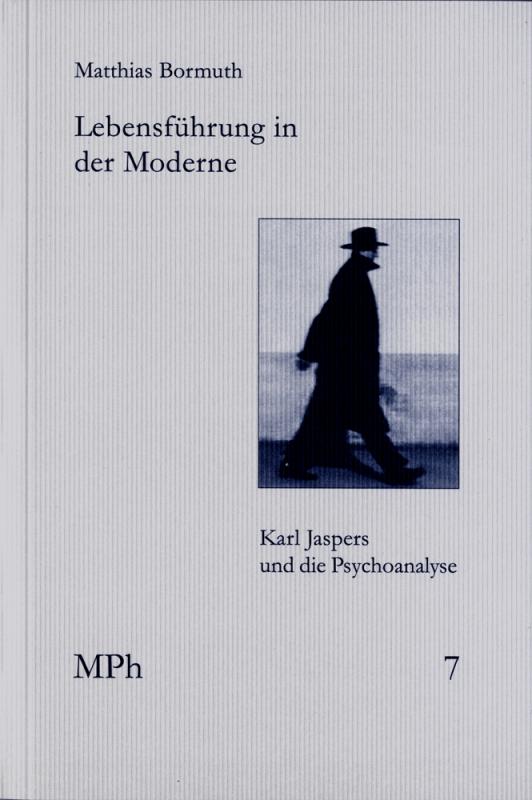
Band
der Reihe "Medizin und Philosophie / Medicine and Philosophy"
- Verlag: frommann-holzboog
- Themenbereich: Philosophie und Religion - Philosophie
- Genre: keine Angabe / keine Angabe
- Ersterscheinung: 15.05.2018
- ISBN: 9783772832086
Lebensführung in der Moderne
Karl Jaspers und die Psychoanalyse
»Lebensführung in der Moderne« wird in der zweiten Auflage um ein ausführliches Nachwort von Matthias Bormuth erweitert, in dem er seine Überlegungen im Blick auf die kantische Anthropologie ergänzt und sich im Horizont eines kulturwissenschaftlichen Skeptizismus mit seinen Kritikern auseinandersetzt. Die Psychoanalysekritik von Karl Jaspers (1883–1969) steht im Mittelpunkt dieser von den Universitäten Zürich und Tübingen preisgekrönten Studie. Jaspers' Argumente wider Freuds Denken werden sowohl in medizintheoretischer als auch in existenzphilosophischer Hinsicht untersucht, wobei Max Webers Theorie der Moderne als Leitfaden der Interpretation dient. Bislang unveröffentlichte Quellen legen frei, wie Karl Jaspers auf Untergang und Wiederaufstieg der Psychoanalyse vor und nach 1945 reagierte. Dabei erweist sich seine scharfe Kontroverse mit Alexander Mitscherlich und Viktor von Weizsäcker als entscheidend für die Geschichte der Psychoanalyse in der Bundesrepublik. Medizinethisch aufschlussreich ist die in diesem Rahmen geführte Diskussion über die Grenzen ärztlicher Autorität in der Psychotherapie. Auch sie verweist auf die leitende Frage der Untersuchung nach einer individuell zu verantwortenden Lebensführung in der Moderne.
Karl Jaspers‹ criticism on psychoanalysis forms the central point of the prize-winning treatise honoured by the University of Zürich. It conveys his arguments against Freud‹s thinking with regard to the history of ideas both within the context of Psychiatry around 1900 and the cultural criticism based on existential philosophy around 1930. From a sociological aspect, their interpretation draws upon Max Weber‹s theory of modern times. By means of sources so far unpublished, the author looks into the matter of how Jaspers reacted on the decline and the revival of psychoanalysis before and after 1945. Especially the fierce controversy with Alexander Mitscherlich which continued well into the 1960s is an important part of the history of psychoanalysis and, from the point of view of contemporary history, belongs to the intellectual foundation of the Federal Republic of Germany. Not to neglect and of special interest to medical ethics is the implicit discourse on the limits of the physician‹s authority. This discourse also refers to the leading question of the possibilities of an individual lifestyle in modern times.
Karl Jaspers‹ criticism on psychoanalysis forms the central point of the prize-winning treatise honoured by the University of Zürich. It conveys his arguments against Freud‹s thinking with regard to the history of ideas both within the context of Psychiatry around 1900 and the cultural criticism based on existential philosophy around 1930. From a sociological aspect, their interpretation draws upon Max Weber‹s theory of modern times. By means of sources so far unpublished, the author looks into the matter of how Jaspers reacted on the decline and the revival of psychoanalysis before and after 1945. Especially the fierce controversy with Alexander Mitscherlich which continued well into the 1960s is an important part of the history of psychoanalysis and, from the point of view of contemporary history, belongs to the intellectual foundation of the Federal Republic of Germany. Not to neglect and of special interest to medical ethics is the implicit discourse on the limits of the physician‹s authority. This discourse also refers to the leading question of the possibilities of an individual lifestyle in modern times.
Weitere Formate
- Paperback 58,00 €
Meinungen aus der Lesejury
Es sind noch keine Einträge vorhanden.
